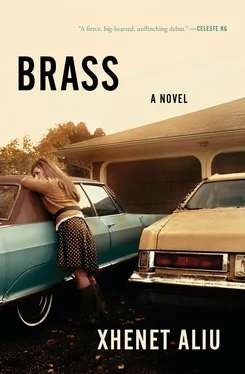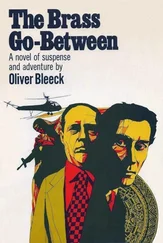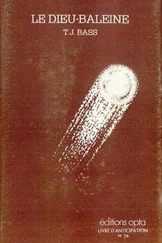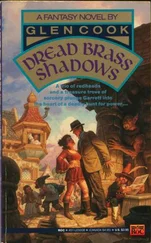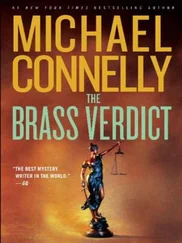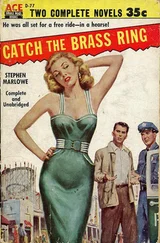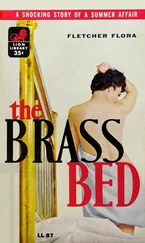“And what will I do?”
“You will do nothing. You will just enjoy. You will drive your own sports car that I buy for you.”
“A Jetta,” I said. “Not a sports car. A new Jetta.”
“What else?”
“An apartment in Manhattan.”
“What else?”
“Um, a fancy dog. A poodle or something.”
“Okay,” he said. “Whatever you want.” He wasn’t even smiling like it was part of a joke. He was for real, this plan he had was for real, and I was lucky enough to be invited along. Maybe everything he was talking about was just a hypnotist’s pocket watch swinging before my eyes, but even if there was a little piece of me that thought I should know better, there was no way I’d refuse the offer. An impossible dream was better than no dream at all.
Some people won’t be surprised at the fuckery of which you’re about to prove yourself capable. These would be the people who see you as a case file: latest in a line of fatherless daughters, lifelong recipient of free school lunches, attractor of stares since puberty came on fast and hard six years before, when you were more interested in Saturday morning cartoons than Saturday evening rec room parties. But those that look deeper into the file will also see a lifetime of honor roll recognition, an IQ well above average but safely shy of genius, not a single behavioral demerit from K all the way through twelve. And those that know you outside of the file will recall how you quit playing flute in the marching band because you were afraid others might catch you taking a wrong step, how you were once so shy that you were tested several times for autism, and they’ll say: No way, not Luljeta, Luljeta would never screw up that way.
But Luljeta will.
To them, to the people who know you, this fuckery will come out of nowhere, but you recognize that it’s been in your DNA from your very conception. In a recent visit to WebMD, which you consult when seeking explanations for why you often feel so tense and queasy, you learned of a theory that certain autoimmune diseases can lie dormant in the body until triggered by an unrelated illness or injury, meaning a patient can recover from the flu only to be diagnosed with type 1 diabetes. You were exposed to your first antigen moments before the end of last period’s study hall, when you received the email you now understand as the universe’s final hint that you are not what you have been promised by aspirational posters in the public library you could someday be:
The admissions committee at New York University has carefully considered your application and supporting credentials, and it is with regret that I must inform you that we are unable to offer you admission to one of our NYU campuses this year.
There were a record number of applicants, they explained. Over sixty thousand, they explained, more than half the population of your entire city, though very few Waterburians were actually among those numbers. Not even the students in your honors classes would have considered applying there, since for the most part, honors classes at Crosby High are simply code for “not remedial.” To apply to NYU, one should be exceptional. To be exceptional, one must obtain perfect grades in challenging AP classes and a stellar score on the SAT, for which one has been prepared since third grade. One must perform charitable work at Guatemalan orphanages over Christmas break instead of logging in double the hours at the IGA, have a father to insert in the slot about Expected Family Contribution, and have a mother who could navigate you through the world of higher education instead of simply saying, “I don’t know, you just better go somewhere if you don’t want to end up like the rest of us.”
In short, one should be not you.
You’re ranked fourth in your class, behind the twin sibling valedictorian-salutatorian duo and their cousin, all children of Crosby High teachers, who can’t afford on their public servant salaries to send their children to Sacred Heart or Holy Cross. It has been made clear to these students by their parents that they will attend a Jesuit university and break the cycle of public teaching to which they themselves have been condemned. It’s been made clear to you by your mother that you should aim for at least B’s and look into the health sciences, since your mother thought once upon a time that she might want to be a dental technician, and there’s always work in that kind of field. Your aspirations were always higher than tartar scraper, yet you walked into the SAT testing session with no preparation other than a large extra-light-and-sweet tumbler of Dunkin’ Donuts and twelve years of public schooling in a district in which the per capita income is less than half the cost of NYU’s annual tuition, idiotically believing that simply paying attention in twelve years of math and English classes was sufficient groundwork for the standardized test that would dictate the course of your future.
And still, you thought not only would you get into NYU but you’d get in with early decision so that you could spend Christmas break feeling less bad about having nothing to do, knowing it would be the last Christmas break in which you would be so bored and lonely that you thought you might actually throw up.
This all seems so terribly and obviously naïve to you now that it feels even worse than Christmastime nausea. It feels like a literal punch to the face.
But of course it’s not. The literal punch to the face is something altogether separate, bad-news lightning striking twice in one day. The literal punch to the face comes from a girl named after the Señor Pancho’s Tuesday night special she was undoubtedly conceived under the influence of.
Margarita never liked you. In third grade she stole the math work sheet you’d been working on, and though you were not a tattle, you were also not a failure, as evidenced by the straight A’s in your aforementioned case file. You’d had no choice but to tell on Margarita, because otherwise you would have been the one who ended up with a zero for the day, which, up until a few hours ago, you believed actually mattered. Your case against Margarita wasn’t difficult to prove: though hastily erased, your name had clearly been visible on the work sheet under Margarita’s, and the handwriting on the rest of the paper was obviously not that of the emerging sociopath who claimed to have done the long division problem that would likely still be impossible for her to this day. Margarita vowed then that vengeance would be hers, and for years she doled it out in little morsels, stealing your regular bra from the locker room while you were in gym clothes for the badminton unit, somehow orchestrating an elaborate musical chairs number that ensured you would never find a lunch seat for the rest of your time in the Waterbury public school system.
But those were children’s games. Margarita was now a woman, with a body that had skipped over adolescence and landed straight on forty-four-year-old mother of three. She hadn’t actually borne any children, but there were rumors she’d recently undergone her third abortion, the first having been chemically induced and completed in the bathroom off of the food court in the mall, the second brought on by a kick to the gut near that same food court, and the third the old-fashioned surgical kind paid for by her mother’s boyfriend, who it turned out had been staying over on nights even when Margarita’s mother was working third shift at the twenty-four-hour CVS. Accompanying Margarita’s saggy, enormous breasts was the toxic indignation of someone chronically shat upon, whose rage was directed not at her perpetrators but at those who dared to be unburdened with the same traumas as she was. Her targets were those whose mothers weren’t on a first-name basis with all the street cops and methadone clinicians in the city, those who remained in school for more than the Head Start breakfasts. Even without the Great Third-Grade Math Work Sheet Caper, even if she could read all the big words in your NYU rejection letter, you would have been the bull’s-eye in Margarita’s crosshairs.
Читать дальше
